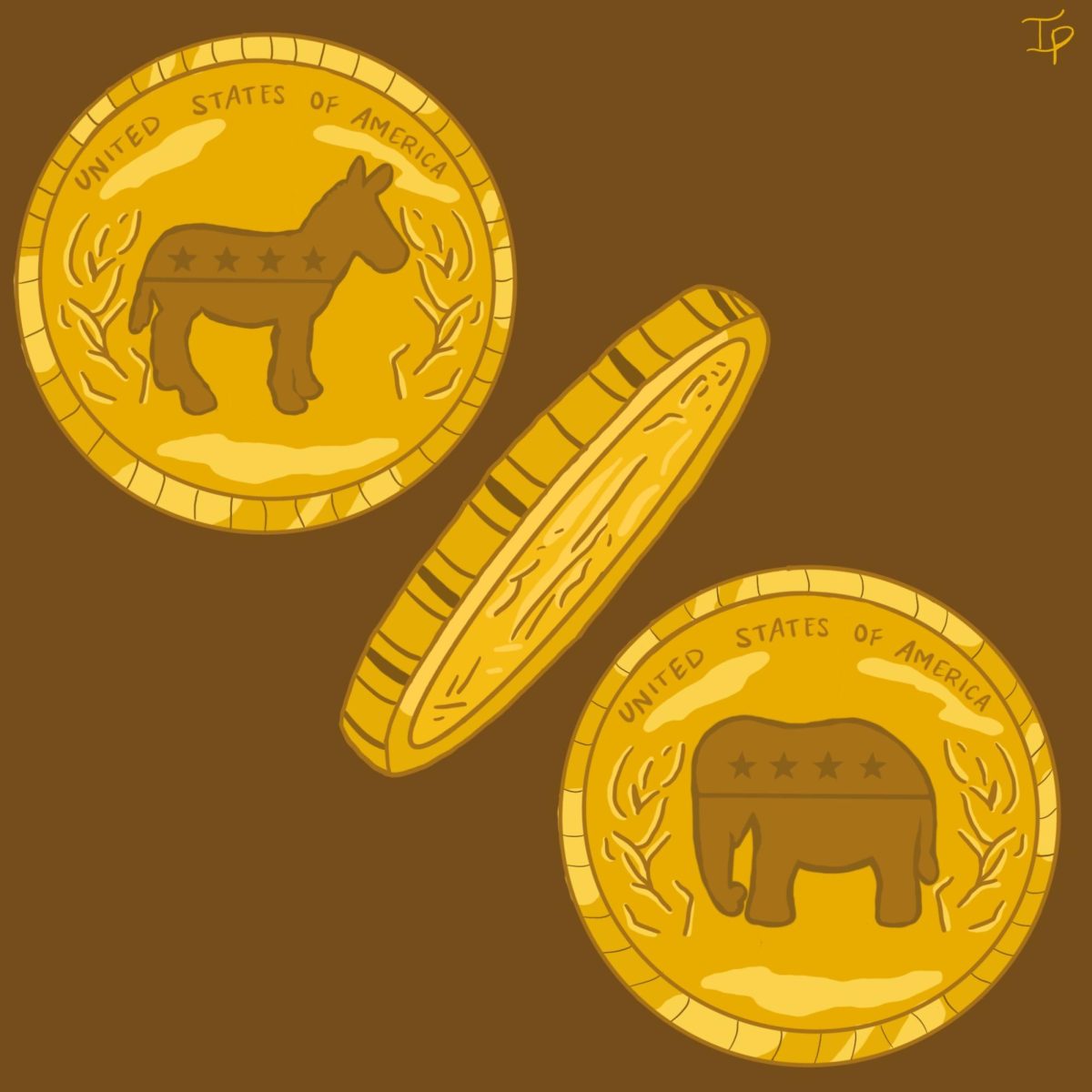Worse than road rage, cars a threat to freedom
October 6, 2004
As deeply divided a society as this often seems to be, there are a few ideas that unite all of… As deeply divided a society as this often seems to be, there are a few ideas that unite all of us across racial, political, class and religious lines to create a unified culture. We’re all bombarded by these ideas all the time, so much so that we don’t even recognize them as anything but indisputably obvious facts.
Of all these, the one that I — as a 21-year-old entering the job market — face most frequently is the idea that everyone should have a car. They’re absolutely necessary, not to mention just plain great; they make life more convenient, more fun and better all around.
So I wonder: If cars make life so much better, why do they seem to turn their drivers into blood-crazed maniacs? At least once a day, a driver risks killing me in his or her desperation to get to the next red light in time.
But cars aren’t really supposed to be safe. The slick red Porsches can attain insanely dangerous speeds and some cars are built like armored personnel carriers more appropriate to the streets of Fallujah than Pittsburgh. Getting a car doesn’t make you safer; it makes you free to drive anywhere, do what you want or travel across the whole damn country if you want to.
But like most of our technology, cars are self-justifying. We can travel much farther to get to work, get medical care and buy food, so now we have to. But we don’t need cars, with their enormous financial burden, to do so. If the government would invest more heavily in public transportation, many more people who can’t really afford to have a car would be free not to have one.
“But,” says the American taxpayer, “wouldn’t that just mean giving more of my money to the government, instead of the car manufacturers and insurance agencies?”
Not necessarily. We currently subsidize roads and cars with more than $300 billion per year, according to the Fossil Fuels Policy Action Institute. That’s $300 billion of taxpayer money that could be diverted to public transportation (and other socially responsible ends) without raising taxes by one cent.
But consider this: I have a bicycle, which cost me about $100. I bought it last April. Since then, it hasn’t cost me anything more than that hundred bucks, and it’s taken me everywhere I need to go in Pittsburgh. Two trips to other parts of Pennsylvania totaled about $60 — between Amtrak and Greyhound. If I had had a car during this time I could have …
Done all the same stuff. And while I was at it, paid insurance, gas and maintenance, as well as the ludicrously high initial cost of the thing. So much for freedom. In order to pay for that, I’d have to sell at least 20 more hours of my life every week to someone who supposes he needs them more than I do.
(Something funny: I keep finding that my actual freedom is inversely proportional to the amount of stuff I own. I also find that the more freedom a given item takes away, the more everyone insists I should have one.)
The social and ecological costs of the car culture are staggering. Cars poison the air we breathe and contribute to global warming. The need for oil necessitates constant intervention in oil-rich regions abroad, particularly Central Asia and the Middle East — the backlash of which is felt in anti-U.S. terrorism. Roads destroy habitat for wildlife, and cars kill the animals outright — they are the greatest threat to the endangered Florida panther, for instance.
And it’s not only felines and rodents on the cars’ menu: They kill humans, too. Roughly 40,000 people each year in the United States are killed in car accidents. Roughly 1 million per year worldwide — that’s 50 times the number killed in wars around the globe in 2003.
These are the costs of the car culture, hidden from plain view.
Those of us who talk about ending the car culture are often accused of trying to stop progress. But that’s nonsense. All cultures are constantly changing — progressing — but there’s no pre-ordained path along which they have to progress, and if progressing in one direction proves harmful, why in the world should we not find a better path?
Steve Thomas wants an environmentally friendly car that he can drive around in a bubble as not to injure anyone or anything. He also wants it for less than $200. E-mail him at tokath55@yahoo.com to make a deal.


